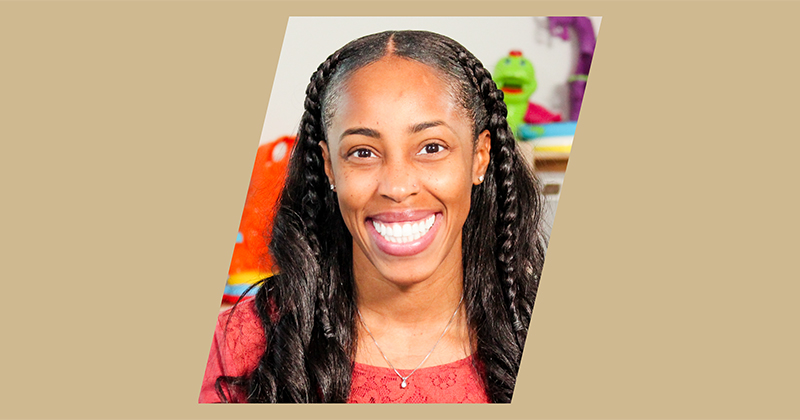Psychological sciences alumna’s helping spirit creates lasting connection to Purdue
Written By: Rebecca Hoffa, rhoffa@purdue.edu

Brandi Smith, a Purdue University Department of Psychological Sciences alumna, has always enjoyed looking at the world from others’ perspectives. From early on, often being the one her friends would go to for advice, Smith knew psychology was the go-to path for her. After exploring a wide range of psychology-related careers during her time at Purdue, she found her path moving in an entrepreneurial direction.
In 2017, Smith opened All Pieces Fit, an applied behavior analysis therapy center, which provides individualized skills-development programs for children with neurodevelopmental disorders and their families.
What led you to start your own business?
When I went to Purdue, I worked outside of campus with individuals with disabilities — mostly adults and a few teenagers — and I decided at that point that I wanted to work with individuals with disabilities. I didn’t know at what capacity at that point; I was still kind of getting my feet wet, so I worked in a group home, and I also worked in a psychiatric hospital part-time. I was able to kind of dabble in all the worlds and figure out this is what I want to do. I opened All Pieces Fit with my husband. He is the CFO of the company, and I am the CEO of the company, and here we are six years later — it’s exciting.
I really enjoy being a small company. It’s a really great way to connect with the registered behavior technicians (RBT) and board-certified behavior analysts here and all of the families. That’s something that’s extremely important that I never want to lose.
What made you choose to major in psychological sciences at Purdue?
I like people, and I like understanding people. My favorite quote is “Know your audience.” It’s super important to know who you’re speaking to and how they perceive things so that whatever message you’re trying to deliver gets through the right way. It’s easy to be misunderstood, so I’ve always been interested in understanding how the mind and emotions work. I also have a sociology degree from Purdue. I tied the two together because if I know the world and how everybody thinks, it adds up to understanding people a lot better in terms of communication and social interaction. As far as Purdue, it was the golden ticket — you go to Purdue, and that’s the best you can do.
How has Purdue impacted your life and career?
I like the diversity of Purdue — I think that’s one of the No. 1 pieces for me. I’m on the College of Health and Human Sciences (HHS) Alumni Board, and I still get those moments to engage with people of different races and backgrounds. That has created a well-rounded personality and character for myself. Purdue is a land of opportunity. There’s not a major there that won’t land you a job or help you to succeed and further your career.
I think my psychology and sociology background has helped me in engaging with my RBTs who work directly with the kids here. I think understanding how the RBTs’ minds work and how they learn allows me a platform to teach them in a better way that’s actually beneficial to them. It’s easy to create a training that is cookie-cutter, but knowing who I’m working with and talking to allows me to present the information in different ways. Some companies operate without wiggle room or gray area, but I operate in the gray because of my psychology degree, and I think that creates a healthier atmosphere.
Were there any classes that were particularly beneficial at Purdue?
My favorite class at Purdue was in clinical psychology, and it allowed me to see the field in depth. We discussed mental health as well as the behavioral health of individuals and groups of people and how they affect each other emotionally. This is when I realized I loved psychology and wanted to further my career in helping individuals with disabilities.
What made you want to stay connected to HHS on the Alumni Board?
I wanted to be part of giving back to Purdue and giving back to the students — being able to talk with students about dos and don’ts, things that I didn’t know as an HHS student at the time. I’m excited to be able to provide that information, just so people don’t have to learn hard lessons or miss out on things.